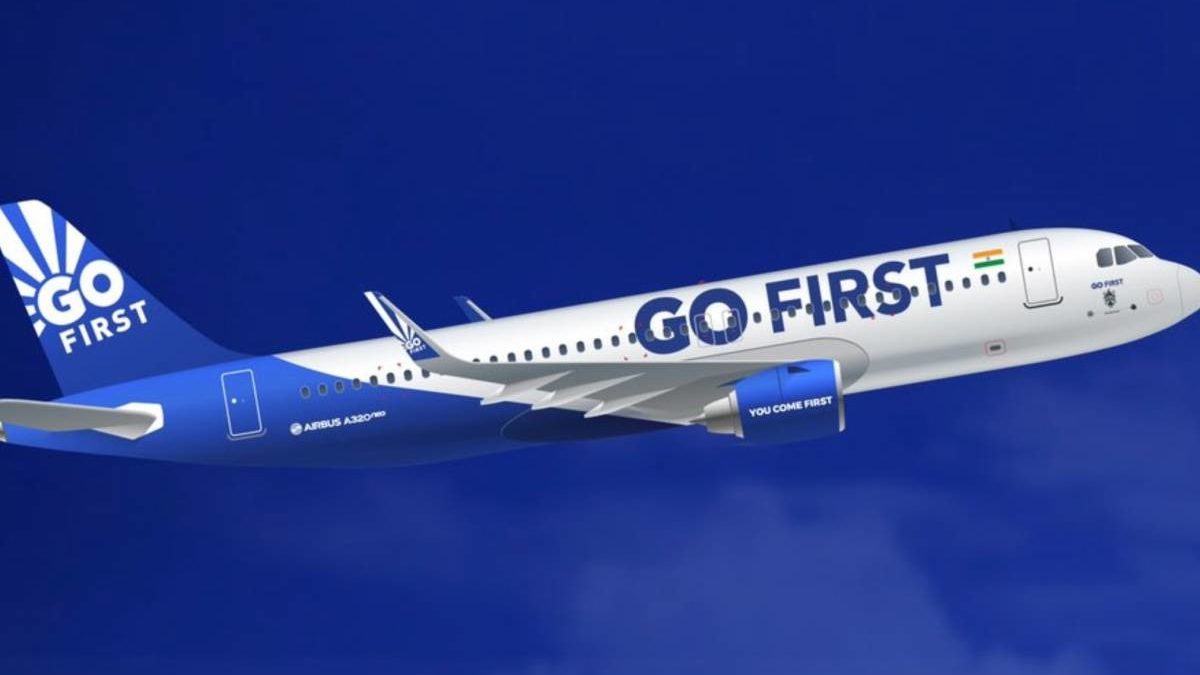Go First Airlines In India Declares Bankruptcy, Blaming Pratt & Whitney Engines.
Go First's total debt to financial creditors was 65.21 billion rupees as of April of this year.

Cash-strapped Go First, an Indian airline, recently declared bankruptcy, citing defective Pratt & Whitney engines for grounding over half of its fleet.
This is India’s first significant airline failure since Jet Airways declared bankruptcy in 2019, highlighting the severe competition in a market dominated by IndiGo & the recent merger of Air India & Vistara under the Tata group.
According to a bankruptcy petition, Go First’s total debt to financial creditors was 65.21 billion rupees as of April of this year.

According to the petition, the corporation has not defaulted on any of the dues as of April but has defaulted on payments to operational creditors, including 12.02 billion rupees to suppliers and 26.60 billion rupees to aircraft lessors.
According to a statement from Go First, the filing with the (NCLT) comes after Pratt & Whitney, the airline’s exclusive engine supplier for its Airbus A320neo aeroplane fleet, refused to comply with an arbitration order to release spare leased engines to the airline, allowing it to resume entire operations.
A fault with Pratt & Whitney engines that safety officials warned may cause a plane’s engine to shut down mid-flight has plagued Indian carriers for several years.
According to Indian media, Pratt & Whitney has been impacted by industry-wide supply chain challenges and expects to alleviate them later this year, allowing for higher output of new and reconditioned engines.
According to analysts, larger rival IndiGo has been able to absorb the effect better because of its more extensive fleet and deeper pockets.
Go First, formerly known as GoAir and owned by the Wadia Group, likewise said on its website that it had cancelled flights from May 3 to May 5 owing to “operational reasons.”

The Indian government has been aiding the airline in every way possible, according to Jyotiraditya Scindia, India’s Civil Aviation Minister. The problem has also been raised with the relevant stakeholders.
As the industry strives to meet a boom in post-pandemic air travel, the fall might help competitor carriers.
Due to supply constraints, the rapid disruption in operations will likely benefit other players while increasing airfares.
Surprise Move.
The decision caught Go First’s lenders off guard, according to two bankers familiar with the situation.
According to one of the bankers, the lenders met with Go First‘s management a few weeks ago, but no indication was offered. According to sources, lenders will meet shortly to examine the situation and deliberate on the next steps.

According to a January report, Go First has 56 billion rupees ($685 million) in rated Indian bank debt. The Central Bank of India and Bank of Baroda own most of the shares.
He is surprised to hear they’ve declared bankruptcy, said Mark Martin, CEO of aviation consulting firm Martin Consulting LLC. He stated that he still believes Go First is not over. This must be a vehicle and a means for a new leader to take over.
According to the airline, the number of grounded aircraft owing to Pratt & Whitney’s malfunctioning engines increased from 7% in December 2019 to 50% in December 2022, costing Go First 108 billion rupees ($1.32 billion) in lost earnings and other expenditures.
The airline was looking for funding, and the Wadia Group was said to be in discussions to sell a majority interest or entirely withdraw its investment.
According to to Go First, the groundings compelled some lessors to seize aircraft, get letters of credit, and inform additional aircraft withdrawals.
Employees were taken off guard since they learned about the suspension in everyday operations from local media first, according to three unnamed pilots. They have been getting their wages with delay for several months, according to the pilots.
Go First later stated in an email to staff that they appreciate that this news is likely to be upsetting and that they are dedicated to assisting all employees during this difficult time.
Conclusion.
The aviation industry was already in trouble as the after-effects of the pandemic. In such a scenario, all the airlines should be more vigilant so that they do not see such harsh conditions as witnessed by Go First.
Edited By, Naveenika Chauhan




